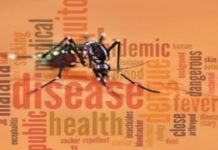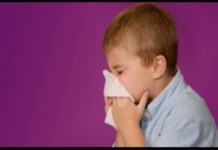Imagine you are all excited about that prom or a birthday bash and you get up in the morning to see a bright red glowing spot on your cheeks. All of us at some point of time have experienced those irritating pimples also called as acne especially during our teenage years. Even though acne is a common skin disease, its effects can be quite detrimental as they sometimes result in social, self-esteem issues. Main effects of acne are psychological and thus in extreme cases even lead to depression and suicides. So let us see some of the ways by which you can prevent getting acne by having a proper diet and a healthy lifestyle.
Almost everyone experiences an occasional flare-up of acne, but it is most prevalent during adolescence, afflicting 85 percent of teenagers to some degree. Hormones are responsible for most cases of acne. Diet and other lifestyle factors, including cleanliness and sexual activity, do not cause acne. In rare instances, sensitivity to a food may exacerbate existing acne, but food does not actually cause it. An exception is kelp, a seaweed that can cause severe cystic acne. Iodized salt can also provoke an acne flare-up. If you think your acne is a result of a food sensitivity, try eliminating suspect foods from your diet for several weeks. Then, add them back to see if your skin is affected.
Heredity is suspected in some cases of severe acne. A number of medications can also cause acne; major offenders include steroids and other hormonal agents, iodine preparations, lithium, and anticonvulsants. Stress often triggers a flare-up of acne, most likely by altering hormone levels. In turn, hormonal changes can stimulate food cravings. Consequently, the acne sufferer may erroneously attribute the acne to food, rather than stress, the real culprit.
CHEMICALS AND STREET DRUGS CAN ALSO CAUSE ACNE
“Chloracne” is a well-recognized clinical sign of exposure to certain chemicals, like dioxins—seen in Vietnam veterans who were exposed to the defoliant Agent Orange. Steroids and the use of the drug Ecstasy have also been linked with acne-like skin rashes.
HOW FOOD CAN HELP
Clear, glowing skin reflects overall good health. This requires regular exercise, adequate sleep, quitting smoking, and avoiding excessive exposure to the sun, as well as a diet rich in some important nutrients. Eat vitamin A and C-rich foods. They help build and maintain healthy skin. There is some evidence that beta-carotene, which is converted by the body into vitamin A, may reduce sebum production. The best dietary sources of beta-carotene are brightly colored fruits and dark green vegetables. Citrus fruits, berries, kiwi, melons, peppers, broccoli, cabbage, and potatoes are especially rich in vitamin C.
Include B6. It’s found in meat, fish, poultry, whole grains, beans, lentils, avocados, nuts, potatoes, bananas, and leafy greens. It may reduce acne by helping to regulate hormones implicated in the development of acne lesions.
Don’t forget zinc. Some studies link this mineral to skin health and claim it may help to improve acne. Zinc promotes healthy hormone levels and advances healing. Seafood—especially oysters—red meat, poultry, yogurt, milk, and whole grains are rich in zinc.
Do not attempt to self-treat acne with high-dose vitamin and mineral supplements; this might worsen the condition. Some studies show that high doses of vitamins B6 and Bu can aggravate acne symptoms, and high doses of vitamin A can cause dry, flaking skin and hair loss. Excessive intake of vitamin A has also been linked with the risk of osteoporosis.
Good nutrition is the first line of defense. Most persistent mild to moderate acne can be controlled with proper skin care, good nutrition, and non-prescription drugs, such as 2.5 to 10 percent strength benzoyl peroxide gel, lotion, or ointment.
A dermatologist may prescribe tretinoin, a topical medication derived from vitamin A; an antibiotic may also be tried. Isotretinoin (Accutane), a potent oral drug, is reserved for severe cystic acne. Since Accutane can cause severe birth defects, women taking this medication should be counseled to use multiple methods of birth control.
MYTH BUSTER
Myth! Some people believe that eating foods like chocolate, French fries, and other high-fat favorites can lead to acne or make it worse.
Reality: Food does not cause acne, dermatologists stress, but eating a healthy, balanced diet is vitally important for great-looking skin.
Visit a dermatologist if you have frequent flare-ups of acne. Some scars never leave you and sometimes acne may leave a permanent scar. So why to wait for the double punishment of first getting the acne and then breaking your head in removing the scars?
-end-




































